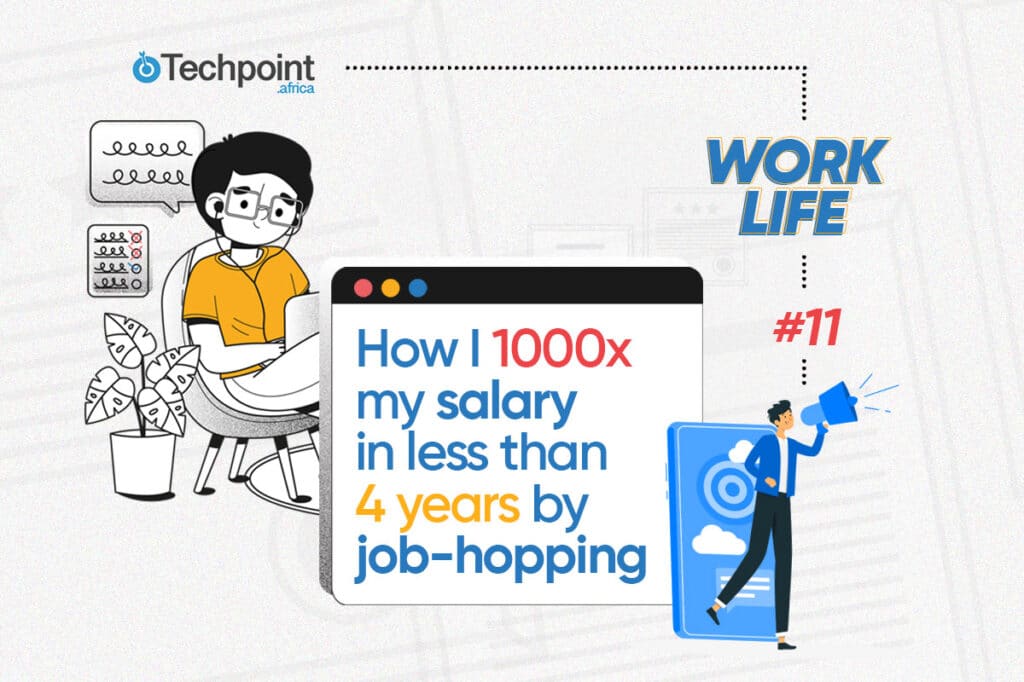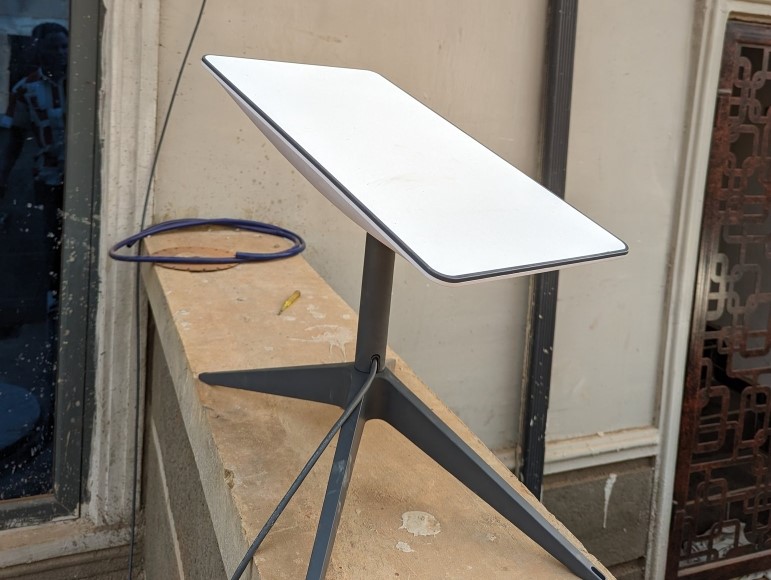Sawubona,
Victoria from Techpoint here,
Here’s what I’ve got for you to
- MTN’s CEO saga: Case closed
- 1000x salary in 4 years: Job-hopper’s secret
- Fintechs roll out controversial fee
- Starlink launches in Zimbabwe
MTN’s CEO saga: Case closed

Remember this? CEO favouritism allegations rock MTN Group
MTN Group has wrapped up an investigation into its CEO, Ralph Mupita, with no evidence of any wrongdoing.
The probe was launched after anonymous complaints accused Mupita of favouring a female executive, which reportedly caused dissatisfaction within the company. However, MTN fully supports Mupita and remains committed to its overall strategy.
An independent law firm was brought in to investigate the claims, but the board found the allegations to be baseless, especially since they couldn’t engage the anonymous complainant.
After a special meeting on September 4, MTN’s board accepted the findings and declared the matter resolved.
Despite the accusations, Mupita still has strong backing within the company. Bloomberg reported that nine senior executives signed a memorandum in support of his leadership, showing that MTN’s top brass has confidence in him.
1000x salary in 4 years: Job-hopper’s secret

I always tell people the only time I’d leave Techpoint Africa is if I’m starting my own thing or maybe, just maybe, for a better offer — sorry Muyiwa, I’m only human! But the latter is unlikely, not impossible. Still, this week’s Work Life edition has got me rethinking that stance.
I mean, how on earth do you 1000x your salary in just four years? Sure, if you’re at companies like Techpoint, maybe you’ve done that in 3-4 years.
Hey, don’t give me that side eye — I’ve only been here three years! Sure, I’ve had some pay bumps, but Oluwanifemi, our Senior Editor, has definitely cracked the code. 😂 And okay, Muyiwa, don’t come for me! I’m not spilling secrets here, just saying you don’t always have to job-hop to see your paycheck grow steadily.
For those of us with extra responsibilities, like taking care of kids that aren’t even ours but still have no choice — nah, don’t tell me I have a choice, pls —, money’s got to be top of mind. Trust me, we know how much goes into taking care of these kids. 😂
So yeah, I totally understand why Stephen, our spotlight for this week, is worried about Nigeria’s economy and feels like he has to double his pay every 18 months by job-hopping. No shame in that game, if you ask me.
In the last four years, he’s worked three different jobs and has somehow 1000x’d his salary. Fun fact: Stephen’s applied for over 100 jobs in just four months — like five a day! Now, that’s what I call “violence taketh by force.”
Having worked in both startups and corporate gigs, Stephen’s got some interesting takes on job-hopping and whether it’s worth the risk. Check out Oluwanifemi’s latest to get the full story!
Fintechs roll out controversial fee

Starting September 9, 2024, Nigerians will start paying a ₦50 one-time fee on electronic transfers of ₦10,000 and above.
This fee, known as the electronic money transfer levy, applies to both personal and business accounts, as directed by the Federal Inland Revenue Service (FIRS).
Unsurprisingly, the announcement has triggered outrage on social media, with many Nigerians criticising the Tinubu administration for what they see as yet another unnecessary tax.
The levy stems from the Electronic Money Transfer Levy Regulations, 2022, introduced to guide how the charge is imposed and collected. Initially introduced in the Finance Act of 2020, it became law in 2022.
The rule states that any electronic transfer of ₦10,000 or more will incur the ₦50 charge, and it even extends to foreign currency transfers, calculated at rates set by the Central Bank of Nigeria (CBN).
These regulations are part of the government’s broader plan to increase revenue from electronic transactions.
Fintech platforms like OPay, Moniepoint, and PalmPay have been quick to clarify that they are not gaining from this fee.
Starlink launches in Zimbabwe

Starlink has officially launched in Zimbabwe, making it the 14th African country to get access.
Zimbabwean users who haven’t already imported a kit can get the standard Starlink dish for $350 or opt for the more affordable portable Mini dish at $200.
The Mini dish is not only cheaper but also portable, allowing it to work on the go, even while driving at over 100km/h.
Shipping fees vary, with delivery to Harare costing $23, and the monthly subscription is set at $50, similar to other Southern African countries.
Starlink is now available in four of South Africa’s six neighbouring countries, with only Lesotho and Namibia left. Lesotho’s rollout is expected by the end of September 2024, and Namibia could launch by year-end.
South Africa’s rollout remains unclear, as Starlink has yet to apply for local licences due to regulatory issues.
In case you missed them
- NITDA and NYSC finally launch phase 1 of digital literacy drive across 12 states
- Google Chrome users should update their browser immediately over security vulnerability
- CAC warns PoS operators of shutdowns as registration deadline passes
- Telegram’s new moderation policy could target illegal content in Nigerian private groups
What I’m watching
- Homo Sapiens vs Neanderthals | The Evolution of Language
- Homo sapiens and Neanderthals – AI Talks – Episode 42 – Four AIs chatting about
Opportunities
- Pitch Friday is this Friday, September 13, 2024. Register here.
- Techpoint is hiring a Managing Editor. Apply here.
- Follow Techpoint Africa’s WhatsApp channel to stay on top of the latest trends and news in the African tech space here.
Have a productive week!
Victoria Fakiya for Techpoint Africa.






